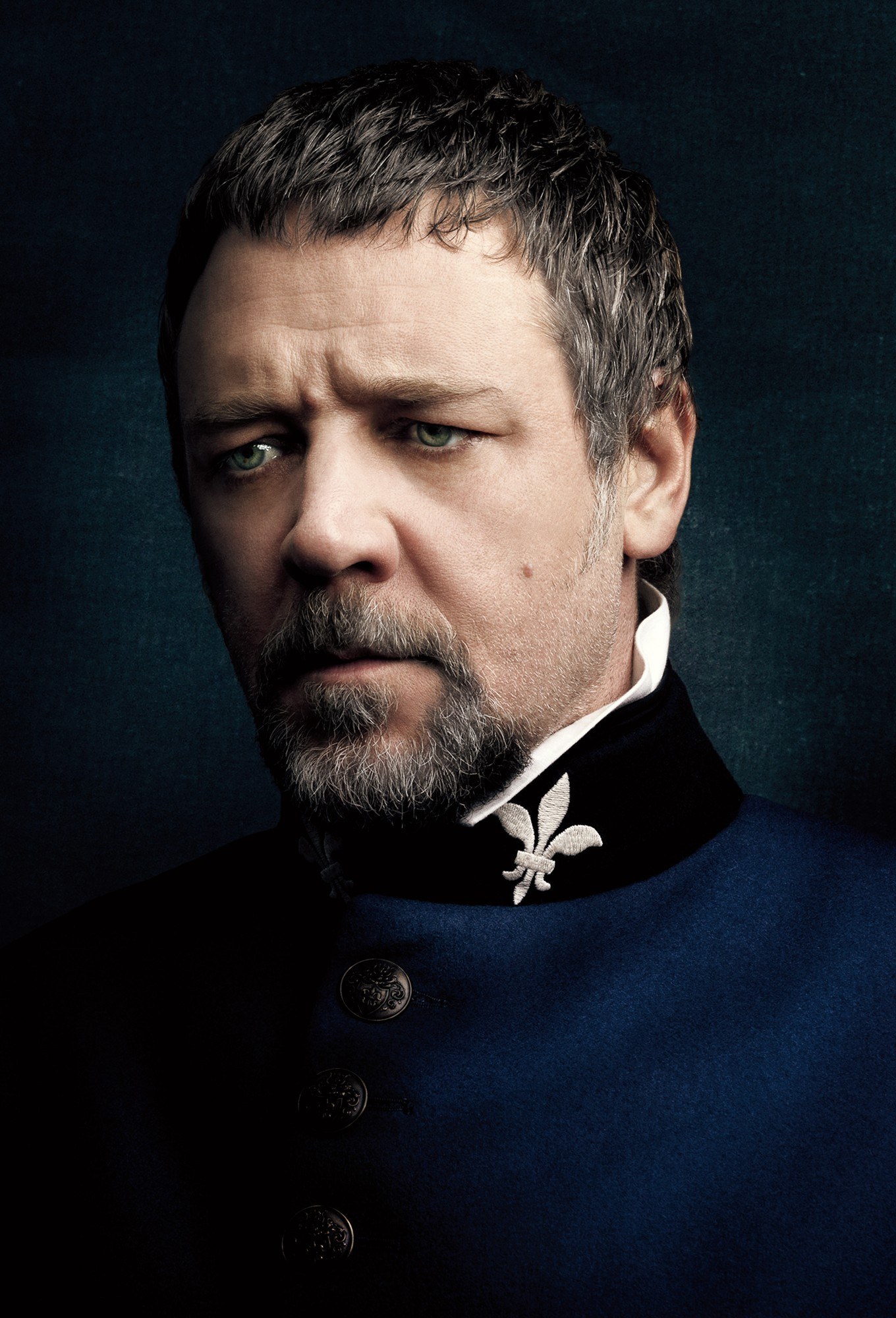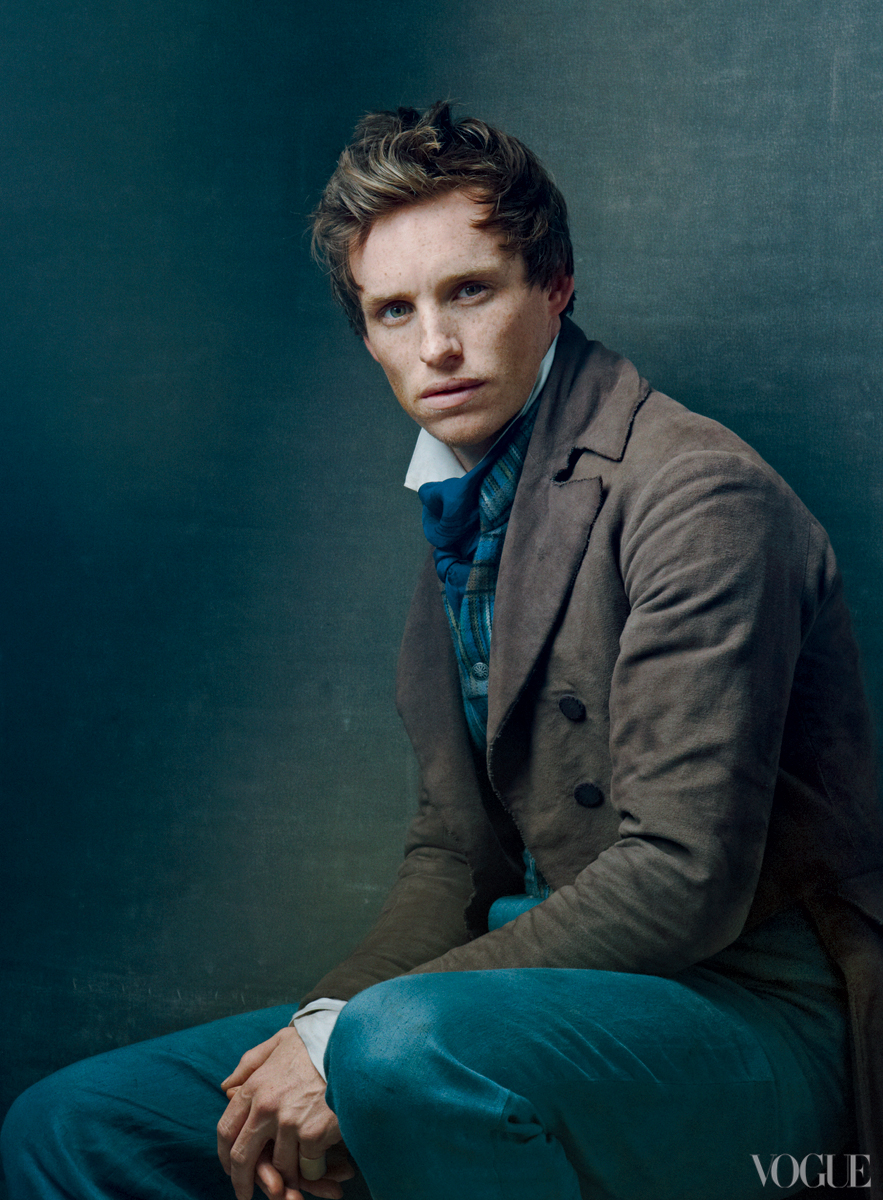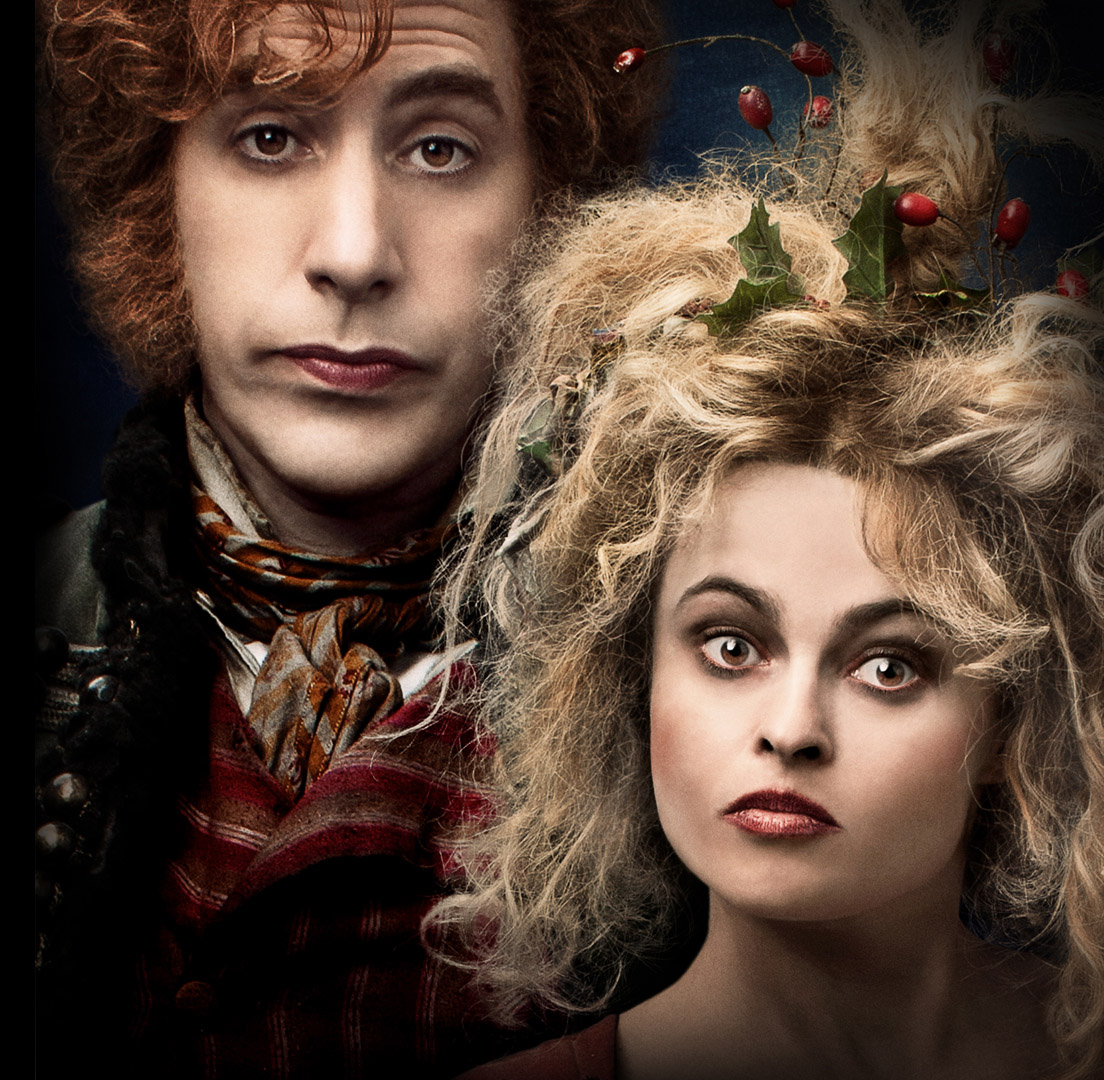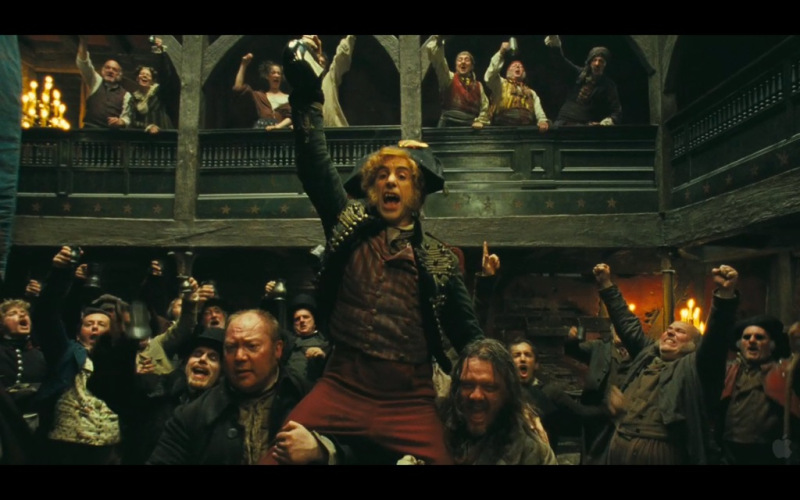


As always let us look at our characters first and bear with me there is quite a handful. First we have our main character Jean Valjean, played by Hugh Jackman, whom is also nominated for an Academy Award for Best Actor for this role at this time. Jean Valjean is such a great character. I seriously do not believe I can sum up enough words to why I began to love him so much. And again I may have stated this in other reviews but he is probably almost on par with the likes of highly likeable and redeemable heroes in film such as George Bailey. And yes I am fully aware that Bailey is in one of the highest honors of greatest film heroes but personally I feel so much about Valjean almost as equal as that of Bailey. And I honestly think it is because of Jackman's performance that makes him seem such like a real character. This is probably the best acting performance I have seen all year because not only was the character written and adapted well into this version of Les Miserables, but Hugh Jackman succeeded in portraying the intended vision for this character. Jean Valjean is loving, complex, a diamond in the rough, and very saint-like without coming out as being to unrealistic and it is they chose a great way and a great actor to portray this character. The other Oscar-nominated and praised performance in this film is Anne Hathaway as Fantine, the mother of Cosette and supporting character. I think Anne Hathaway's performance of the musical's trademark song "I Dreamed a Dream" is what sold it arguably. But I do highly believe that the other scenes that Fantine were featured in were done wonderfully too by Hathaway. "I Dreamed a Dream" was probably just the icing on the cake. Every scene with her you fully feel tremendous pity for her and all the hell she has to go through in all her scenes. It's absolutely gut-wrenching to see such a beautiful woman with a beautiful character and personality go through so much suffering. Tom Hooper did an excellent job with most of the film by not sugar coding a lot of it and the scenes with Fantine are definitely no exception. This is definitely one of Hathaway's best performance as she puts the best of her talents into this one role. She can be nimble, subtle, quiet, emotional, and last but not least lovable. You also got Cosette played as a young girl by Isabelle Allen and as a young woman by Amanda Seyfried. I have to be honest I sort found the character a lot more interesting when she was a young girl. It is weird for me saying that seeing how I am hardly a fan of child characters in film because Hollywood likes to make them obnoxiously too cute or too adult. This is a British film in reality, but anyways, I loved the way that Allen was able to express a lot of great emotions and expressions without saying (or singing) anything. Yes she sings, but when she does not she often stays quiet and she is still able to get across a pretty good performance in order for the audience to be allowed to actually care about her. To me when Cosette turns into a young woman I think she is just reduced to the role of love interest. But to be fair she is not a terrible character nor does Seyfried does a terrible performance. They are both really decent. I just think when the character was a young girl, she seemed a little bit more fleshed out. But again the young woman Cosette helps the development of the story, Jean Valjean, and another character named Marius. Marius is a young man and student who is involved in the June Rebellion of France. What makes this specific character interesting is his relationship with his fellow men who are also rebels fighting oppression against the French monarchy. You can tell that him and the rest of his fellow men stick together like glue. The comradeship is very present whenever there are scenes involving him and the Rebellion. But maybe I should also mention about his relationship with Cosette. It's done decent enough. I'll admit feels more like a stereotypical Disney romance at first but the passion is very present. Sacha Baron Cohen and Helena Bonham Carter as the crooks and swindlers the Thenardiers are highly entertaining as they serve their purposes as minor villains as well as comic reliefs well. But then we come to Russell Crowe as Javert, the man on the hunt for Jean Valjean. The passion and obsession of Javert to get Valjean is definitely present as it should be, because that is one of the highlights of this story. But man, that singing...that singing is atrocious! The singing for this film was not meant to sound pretty or very Broadway-like, things were done a little different. The actors had to act and show emotion first before singing and for the most part most of them do a terrific job at that and made it possible to work. Crowe on the other hand does not even try to break an octave or have a melody. He does not even seem interested in acting as well, so not only does his delivery sound ear grating but it also sounds dull and mellow. Everything else is superb, except unfortunately Russell Crowe.







What makes Les Miserables such a revolutionary musical is the overall way they portray the characters, song numbers, and setting. It is not like any other adaptation of a Broadway musical where the filmmakers try their best to recapture the colorful, bright, and energetic feel the staged versions had onto film, the story's subject matter and cast of characters were to be taken more seriously than that of any other musical. It wanted to be dark, gritty, dirty, and to be filled with a semi-gothic feel in order for the audience to actually go feel the exact same emotions that the characters feel on screen. One way Tom Hooper made sure this film felt as real as possible was to make a risky move, have the actors sing their song numbers live while filming rather than record them in a recording studio. This was done so that on camera the actors were allowed to act and express their emotions first before singing. And for the most part it pays off surprisingly really well for a lot of the cast. The acting and emotions expressed helps the audience feel and connect with them more while they are singing because a lot more of their deep feelings are present and it works perfectly well with song. That is except for Russell Crowe but I bashed him enough, I don't want to beat a dead horse. But still there is no other words that I can express about why does the decision of singing live works so much, it just does and just really, REALLY works. The only thing that I can say is that this praise I am giving can easily be supported by proof, and that proof is the "I Dreamed a Dream" number performed by Anne Hathaway. Usually this song is famous because of the memorable melody and the always pretty voice that goes along with it. But see this rendition is different, in this we don't hear a pretty angelic voice. We hear a poor and suffering women whose life has been turned to complete hell. We hear bawling, screaming, suffering, pain, agony, depression, and sadness all in that one song and all because of the talent of being able to have an amazing performance and still come across of having a voice that all around clings to your heart causing tears to flow out of your eyes. Other favorite numbers I like to address is "Master of the House", "One Day More", and "Can You Hear The People Sing". "Master of the House" is truly the comic relief/villain song of the film that comes across as both enjoyably comedic and despicable which makes it a unique villain song. "One Day More" is triumphant, sung by almost the entire ensemble, and expresses every bit of feeling and emotion that each character is feeling at that moment in time and it is great to listen to. And "Can You Hear the People Sing" like "One Day More" is also pretty triumphant as well as uplifting and melodic. It just goes to show that risks are sometimes more than worth it.




The story is expected to be a good one seeing how it has been told for years ever since it was published by Victor Hugo in the 1800s and has been adapted into many film versions and of course the Broadway musical. This film succeeded to capture both the feel and tone of Hugo's original story and the grand feel of the musical. It had the best of both worlds, and both help the other out by providing new spins and takes for one another. It had grand visuals, grand song numbers, a grand story, grand characters, a grand setting, grand emotions, and grand heart, and all which were noticeably present. Les Miserables will definitely put a smile on your face once finished.
GRADE: AE

Want to know about Requested Reviews? To learn more click here.


0 Comments